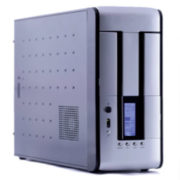Big data: Computer Diogenes Syndrome?
 Go ask … Before answering and see if this is possible, let’s stop to think what data may have our and how can be used.
Go ask … Before answering and see if this is possible, let’s stop to think what data may have our and how can be used.
Daily, we can handle and provide huge amounts of data. Check our bank account, make transactions, buy online, indicate our position through mobile, publish content on social networks, etc. As a curious fact, about 12 Terabytes of tweets are published on Twitter, and about 100 Petabytes of photos and videos are stored on Facebook. On the other hand, the different companies handle daily a multitude of data on our consumption (water, electricity, telephone), buying habits, preferences …
Likewise, companies maintain large amounts of transactional data, gathering information about their customers, suppliers, operations, etc. In the same way it happens with the public sector, (population data, taxes, credit history, income, patrimony, medical records, etc.)
Another important source of data is the machine-to-machine communication, “M2M machine-to-machine”. It is estimated that there are more than 30 million sensors interconnected in different sectors (transport, industry, services, commercial …).
In short, human beings are creating and storing information constantly and increasingly in astronomical quantities.
In reality, this information has always been exploited. In our case, we have been developing projects with business intelligence applications or integration tools for many years, capable of mixing information from different databases, transforming information into knowledge to improve decision making.
But sometimes this is not enough, and that’s when the Big Data concept comes into play. Term applied to the set of data that exceed the capacity of the usual software to be captured, and especially managed and processed in a reasonable time.
A priori, there is nothing fundamentally new in Big Data. Even many experts in the field say that it is nothing more than a “commercial hook” to refer to the statistics we have always known, and it is simply the natural evolution of techniques and how experts approach problems.
In this sense, two of the companies that make the best use of the data they collect are Google and Facebook. But new opportunities are also opening up for SMEs. One example is the recently created company ASThRO, with which we have collaborated since its inception. This company models networks, explaining and predicting their behavior, demonstrating that collective human behavior is predictable. They have published their method in The Royal Society, The American Physical Society, MIT and others.
In conclusion, we can affirm that one of the distinctive features of Big Data is the ability to model and predict certain behaviors of the human being based on the trace left by the human action on the net. It would be premature to answer the question with a resounding YES, but no doubt over time statistical models can be assembled to achieve it.
From our point of view, the success of Big Data projects will not be due to the illogical treatment of a huge amount of data, that would inevitably lead us to a “Computer Diogenes syndrome”. But in the intelligent use of them; Knowing the result you want to look for, putting the technological means that minimize the volume of data to store and its efficient processing.

CEO Besoftware BSW
Article included in Vida Económica Magazine Big data: ¿Síndrome de Diógenes informático? (pdf)



